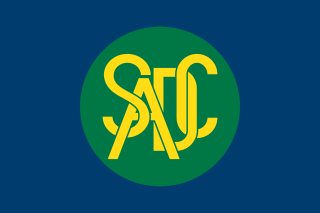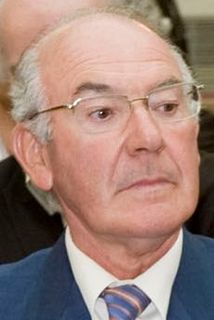 |
|---|
| This article is part of a series on the politics and government of Lesotho |
Monarchy |
Government |
|
|
General elections were held in Lesotho on 17 February 2007. They had originally been scheduled to be held in April or May 2007. In October 2006, Tom Thabane left the ruling Lesotho Congress for Democracy (LCD) and formed a new party, the All Basotho Convention (ABC), and 17 other members of parliament joined him. This left the LCD with a narrow majority of 61 out of 120 seats. On the advice of Prime Minister Pakalitha Mosisili, King Letsie III dissolved parliament on November 24, 2006, and the election was scheduled for February 17, 2007. [1] [2] The bringing forward of the date caused dissatisfaction amongst the opposition, which expressed concern that it would not allow sufficient time for campaigning and electoral preparations. It was believed that the election was called early due to the possibility that there would be further defections from the LCD, depriving it of its majority. [2]

Lesotho, officially the Kingdom of Lesotho, is an enclaved country–the only one in the world outside of the Italian peninsula–within the border of South Africa. It is just over 30,000 km2 (11,583 sq mi) in size and has a population of around 2 million. Its capital and largest city is Maseru.

Thomas Motsoahae "Tom" Thabane is a Mosotho politician who has been Prime Minister of Lesotho since June 2017. Previously he was Prime Minister from June 2012 to March 2015. He is leader of the All Basotho Convention (ABC) political party.

The Lesotho Congress for Democracy is a political party in Lesotho.
Contents
80 constituency seats were up for election together with 40 seats allocated by proportional representation. The poll was monitored by the SADC and the American National Democratic Institute. [3]

The Southern African Development Community (SADC) is an inter-governmental organization headquartered in Gaborone, Botswana. Its goal is to further socio-economic cooperation and integration as well as political and security cooperation among 16 southern African states.
The electoral commission announced late on 20 February that the LCD had won 61 out of the 80 constituency seats, while the ABC won 17. [4] The Alliance of Congress Parties won one constituency seat, [5] and the vote in Makhaleng was delayed because a candidate there had died. [4] The National Independent Party, which is allied with the LCD, won 21 seats through proportional representation, and the Lesotho Workers' Party, which is allied with the ABC, won 10 seats through proportional representation. ABC leader Tom Thabane called the vote free, but not fair. [6]
The Alliance of Congress Parties is an electoral alliance in Lesotho, consisting of the Lesotho Peoples' Congress, the Basutoland African Congress, and the Basotho Congress Party. In the 17 February 2007 parliamentary election, the alliance won 3 out of 120 seats.
The National Independent Party is a political party in Lesotho.
The Lesotho Workers' Party is a political party in Lesotho. In the 25 May 2002 parliamentary election, the party won 1.4% of popular votes and one out of 120 seats in the National Assembly. In the 17 February 2007 parliamentary election, the party won 10 seats through proportional representation. It is allied with the All Basotho Convention.
An extended dispute has followed the election regarding the allocation of the seats based on proportional representation. Despite acknowledging that the LCD won the election, the ABC has argued that the proportional seats were not allocated correctly. The LCD's reluctance to engage in talks prompted Thabane on October 18, 2007 to threaten street protests to pressure the government into holding a new election "if they continue to fail to co-operate". [7]








